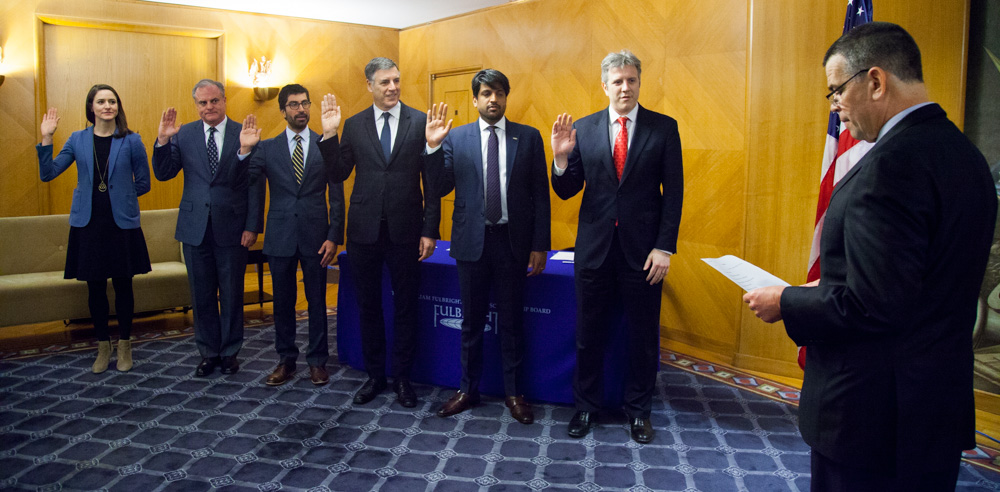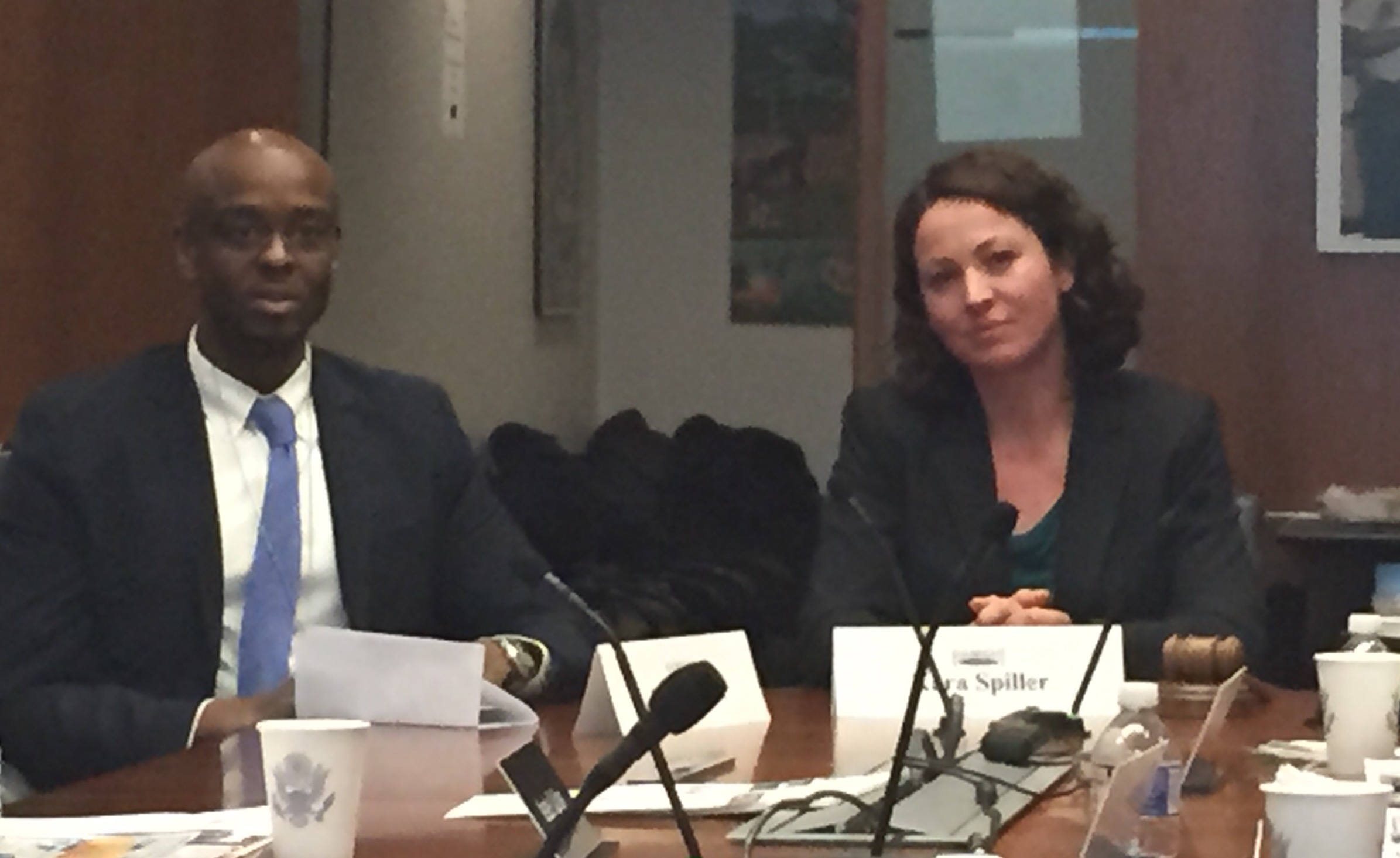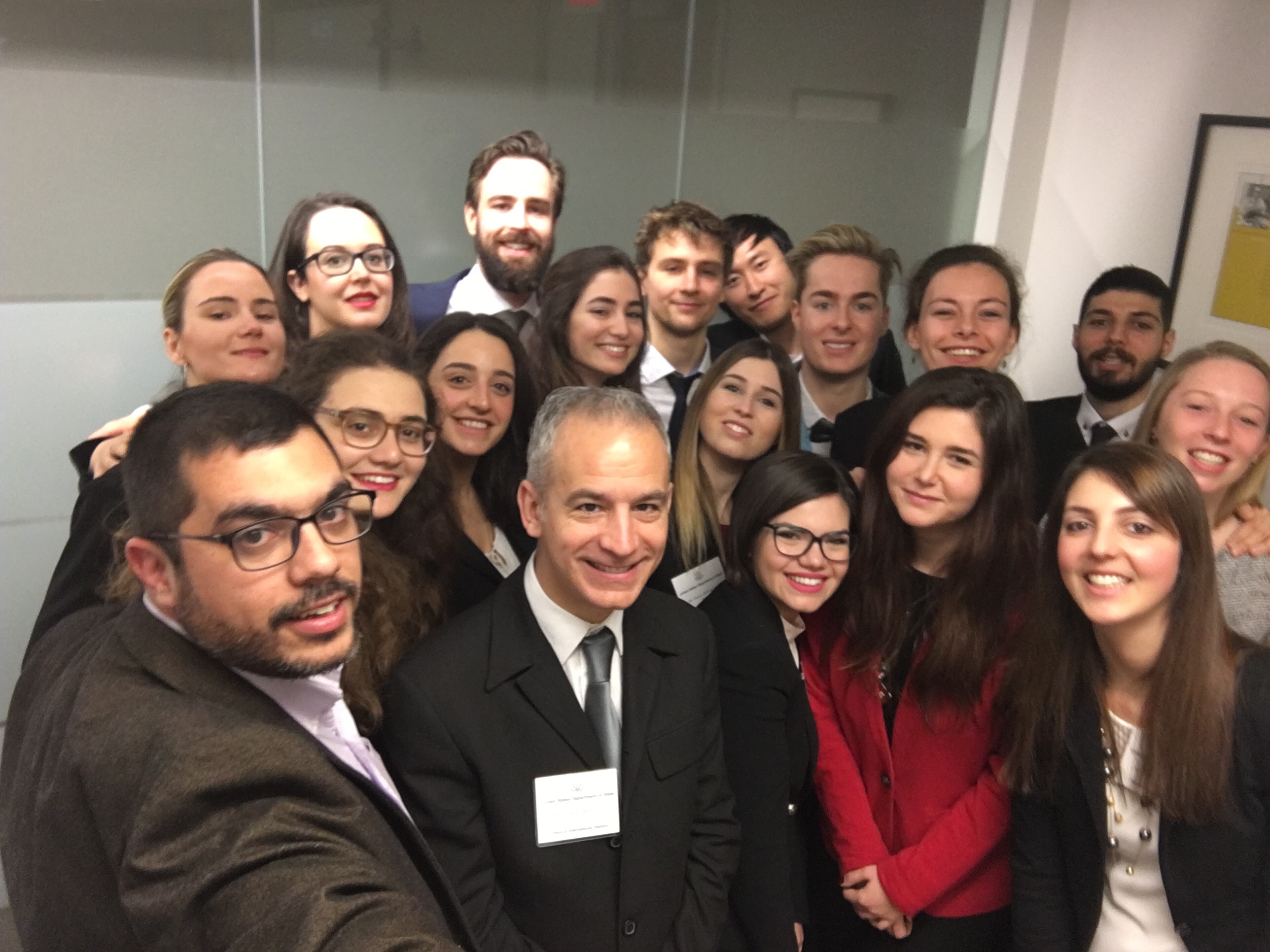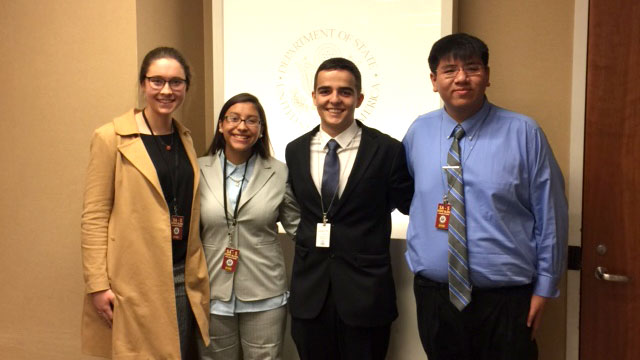ffsb_board_022017.jpg
 Acting Under Secretary for Public Diplomacy and Public Affairs Ambassador Bruce Wharton (front, fourth from right) and members of the J. William Fulbright Foreign Scholarship Board
Acting Under Secretary for Public Diplomacy and Public Affairs Ambassador Bruce Wharton (front, fourth from right) and members of the J. William Fulbright Foreign Scholarship Board
The Fulbright Foreign Scholarship Board held its 274th Quarterly Board meeting on February 9 in Washington, D.C. at the U.S. Department of State. The event featured a Swearing-In Ceremony, presided by Acting Under Secretary of State for Public Diplomacy and Public Affairs, Ambassador Bruce Wharton, to welcome five new members and the reappointment of Board Member Maneesh M. Goyal. The new members include former U.S. Senator Mark Pryor, Dr. Markos Kounalakis, Christopher Fonzone, Rudy Mehrbani, and Natalie Quillian. (Note: Read Ambassador Wharton’s full remarks and view additional photos from the ceremony.)
swearing_in_022017.jpg
 Acting Under Secretary for Public Diplomacy and Public Affairs Ambassador Bruce Wharton swears in new members and a reappointed member of the J. William Fulbright Foreign Scholarship Board
Acting Under Secretary for Public Diplomacy and Public Affairs Ambassador Bruce Wharton swears in new members and a reappointed member of the J. William Fulbright Foreign Scholarship Board
During the meeting, the Board discussed program updates and elected Anita McBride as Vice Chair for 2017. Highlights also included a meeting with Fulbright Alumni Ambassadors, Justin L. Hill (Fulbright U.S. Student in Law, Barbados 2009-2010) and Kara Spiller (Fulbright U.S. Student in Engineering, Portugal 2010-2011), who serve as official representatives of the Fulbright Program to demonstrate the program’s rich diversity and to play a key role in expanding outreach to prospective grantees across the United States.
alumni_ambassadors.jpg
 Fulbright Alumni Ambassadors Justin L. Hill (Fulbright U.S. Student in Law, Barbados 2009-2010) and Kara Spiller (Fulbright U.S. Student in Engineering, Portugal 2010-2011)
Fulbright Alumni Ambassadors Justin L. Hill (Fulbright U.S. Student in Law, Barbados 2009-2010) and Kara Spiller (Fulbright U.S. Student in Engineering, Portugal 2010-2011)
The Board also received briefings from World Learning, a new implementing partner of the Fulbright Specialist Program, and Dr. John B. Bader, Executive Director of the Fulbright Association, about ways to strengthen the partnership between ECA, the Board, and the Alumni Association to more effectively mobilize and empower the Fulbright Alumni network to create lasting Fulbright impact in their local, national, and global communities.




